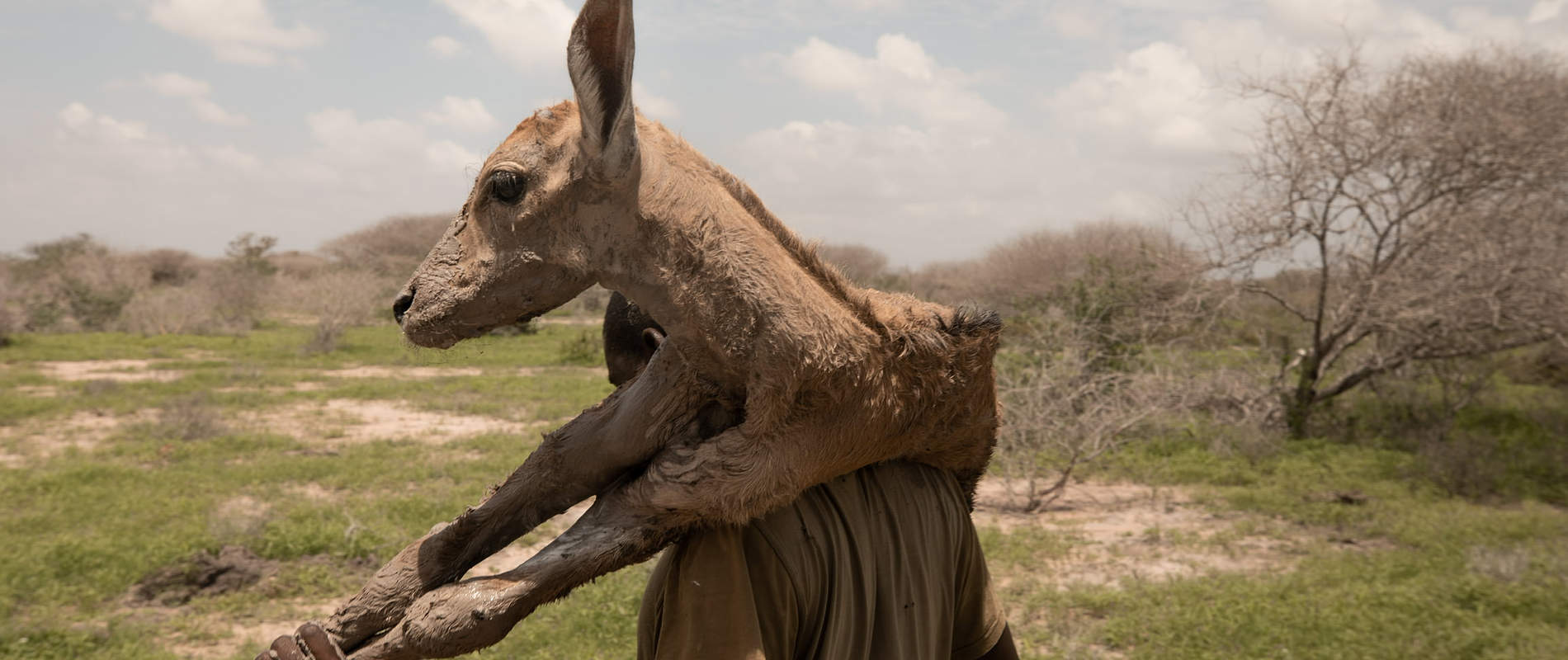Every day in the field brings surprises. This started as an operation to extract two giraffes — and ended with a surprise orphan rescue mission!

On 19th November, one of our pilots spotted two giraffes stuck in the perimeter trench for the NIB irrigation scheme on Galana. Ground teams tried to reach them, but a deluge of rain impeded their progress. They made another attempt the following morning, but their cars were unable to make it all the way because of a cavernous wash-away that had formed overnight, a full 2.5 kilometres away from the poor pair.

It was time to activate plan B. With their shovels in hand, the team trekked through the mud to reach the giraffes. The trench was six feet deep, creating a trap even the world’s tallest animals couldn't escape from. The team excavated the walls, creating a ramp. Then, they coaxed the giraffes down the trench towards the ramp. The team walked behind them the entire length of the trench, guiding the giraffes to their emergency exit. But they weren’t alone! Two more giraffes were waiting up on solid ground and followed them from the outside, cheering their friends on as they made their triumphant exit.

The giraffes were freed, but the team’s work wasn’t done yet. When they initially walked into the trench, they saw that a small antelope was also stuck inside. They walked back to investigate — and realised it was actually an orphaned infant eland. Based on his emaciated and dehydrated state, he had been on his own for several days.

When grown, elands are among the largest species of antelope in the world. Luckily, this little chap was very much a baby. Each taking turns, the team scooped him up and carried him on their backs, knapsack style, for the 2.5-kilometre walk back to the cars.

Upon arriving at our Lali Field Base, on Galana, they gave him a bottle of rehydration, which he drank thirstily. Then, the orphaned eland hitched a ride with our pilot back to our Kaluku Field Headquarters. Although he still needs to put on condition, he is settling in well amongst the menagerie there. We have named him Billy.

It started with an eagle-eyed sighting on a flight, and it ended with a marathon in the mud. All told, the team waded through more than 7 kilometres of thick, black cotton soil, battling temperatures that soared into triple digits (40ºC). Because of their perseverance, three lives were saved that day.
